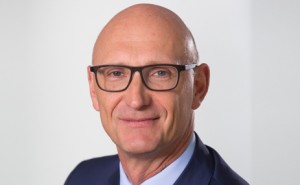
After more than 40 years of operation, DTVE is closing its doors and our website will no longer be updated daily. Thank you for all of your support.
Telekom chief commits to building broadband, criticises Vodafone deal
Deutsche Telekom invests “more than all of its competitors put together” in broadband in Germany, according to CEO Timotheus Höttges.
Speaking at Telekom’s shareholders’ meeting, Höttges also called for an end to regulation of “new fibre-optic lines” to achieve the goal of nationwide access to gigabit speed broadband, but continued to voice his opposition to Liberty Global’s sale of its German cable unit to larger player Vodafone.
The Telekom CEO called for other companies to invest in new networks, instead of criticising the telco or “staying cozy in regulated markets”.
However, Höttges, asked about Vodafone’s acquisition of Liberty Global-owned Unitymedia, referred to the danger of “re-monopolisation” and said that the combined cable outfit would connect 70% of TV customers, raising antitrust issues.
“We are pleased to have competition, at any rate, because if it is fair, then it is good for the customer,” he said.
The majority of German households receive TV signals via satellite, a fact that Höttges failed to mention in referring to the 70% figure. According to Ovum’s most recent analsys of the multichannel market, Vodafone had a17.5% market share, compared with 14.5% for Unitymedia and 6.9% for Deutsche Telekom.
Höttges said that the company had spent €5.4 billion on networks and infrastructure over the last year.
He said that, with a market share of 40% in broadband, Telekom would provide 80% of households and companies with high-speed internet by the end of this year, whether direct or indirectly.
The targets for the next stage of Deutsche Telekom’s broadband strategy are to provide 26 million households with up to 100 Mbit per second, and 15 million households with as much as 250 Mbit per second, by the end of the year.
Höttges also highlighted Telekom’s focus on upstream speeds, which he said were increasing in importance.



